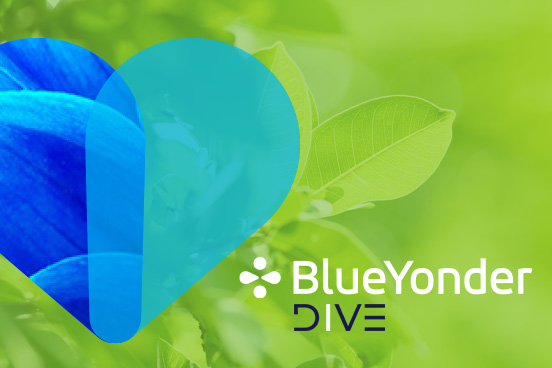
In today’s DIVE In blog, Belen Fabregas, Supply Planning CoE Director at PepsiCo, shares her thoughts on diversity and inclusion, personal anecdotes, and advice to reach your goals in our “Fearless Females of Supply Chain” Blue Yonder Live. A Blue Yonder customer, Belen has over 20 years of experience in supply chain. Like so many of our other customers, her knowledge and expertise provide inspiration that allows us to build a more equitable and diverse world. She offers insight into her obstacles and how being yourself is the most vital ingredient for success.
What do diversity and inclusion mean to you, both personally and professionally?
As Winston Churchill said, diversity is the one true thing we all have in common. I am the oldest of nine brothers and sisters and have the same father and mother, we are pretty diverse. We have learned the power of being mixed and treating each other inclusively. Diversity and inclusion are two related concepts and are far from being interchangeable. Diversity is about the representation or the makeup of an entity like gender, religion, and age. Inclusion is about how well the contributions, presence, and perspectives of the different groups of people are valued and integrated into an environment.
Would you say growing up in such a large family exposed you to different worldviews?
We know what it means to work together and to respect each other. With six women and three men in the family, we have learned what diversity means in terms of gender and age because of the diverse gender and age between family members.
What do you think are the biggest obstacles to reaching a diversified workplace?
One of the biggest obstacles creating a culture of inclusion in a multinational and multicultural company like PepsiCo, where employees have different nationalities, genders, religions, and ages. They should feel respected, and their contribution should be valued – these are big challenges to creating a diversified workplace. It is not that we should focus on a unique campaign every year, but it is really to develop and embed this culture in the company. For me, relevant KPIs coming from supply chain – KPIs, key performance indicators are clear, should be measured and monitored to see the progress. There is an opportunity to deliver a more equitable and diversified workplace as long as companies are armed with the correct data, their challenges, and the proper objectives. Another big obstacle is the different approaches and policies that other governments implement in various countries while being part of a multinational company. We need balance; we are working around the world with different cultures, different religious approaches, and also different government approaches. We should work harder to align the governments because, in some cases, we have significant obstacles.
I had a pleasant experience because I was supporting a global program in PepsiCo and was exposed to presenting this international program in Arabic countries. I was the only woman doing the presentation. I felt well-respected, and we made a small step forward. Still, at the same time, I saw how different governments and cultures impact everyone.
Looking back at your career, is there anything you would have done differently to accelerate acceptance and inclusion?
To be honest, I would change something in the past. I will not assume that because I was lucky to grow up and work in pretty diversified environments. I never felt I was not respected. Everybody is supposed to do this. I should empower more specific or targeted groups, such as women and engineers, where I can provide mentorship and coaching.. Because of my position, I think I should be mentoring more women to join companies that open their eyes to demanding respect. Being a woman and working in functions where we are a minority will change.. I think that all of us can share our experiences. I should do more, and I am trying to do more now. We can lead by example and provide excellent support for other groups. Acting as a leader means leading by example.
One example I am involved in now is working with PepsiCo and their involvement in a significant European initiative called ‘one network.’ The initiative focuses on an effort to empower companies to change how women are treated and understand how other age groups are appreciated.
What advice would you like to share with other women, that might help them reach their goals and become boundary pushers themselves?
Be yourself. Be authentic. Do not pretend that you are something that you are not. Do not pretend that you are different to impress people. Be true to your core identity and try rather than faking a different one because you think you will be more respected and well recognized. Be yourself because this is the power of the world where we live, that we are different. At the same time, we can learn from others to accept those differences and manage and create a more diverse culture worldwide.
Watch Blue Yonder’s recent LinkedIn Live session with Belen Fabregas.

